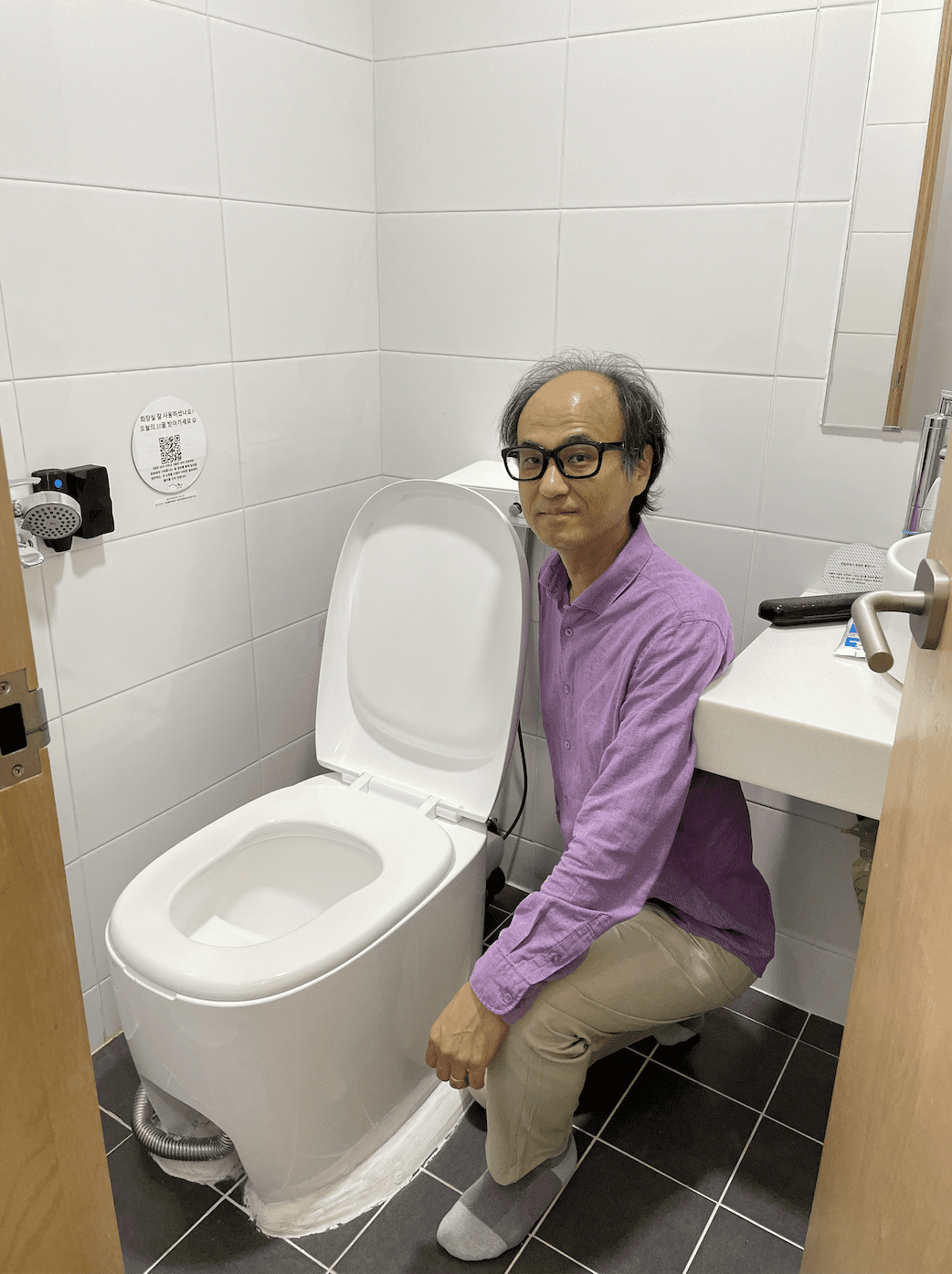Energy-saving toilets at South Korea’s Ulsan National Institute of Science and Technology are allowing people to earn a digital currency by using them, Forkast.News can confirm.
Installed in a building named “the Science Cabin” on campus in 2018, three toilets are connected to a vacuum that pumps human waste into an underground tank, where micro-organisms decompose excrement to produce methane that is used as a source of energy for the building.
The BeeVi toilet, as it’s known — a portmanteau of the words “bee” and “vision” — also allows users to earn a virtual currency named Ggool, which means “honey” in Korean. It’s also known as is “feces Standard Money,” and it can be used at shops on campus.
The inventor of the toilet, Cho Jae-weon, an urban and environmental engineering professor at the institute, explained his motivation for devising the digital currency to Forkast.News.
“I wanted to make a currency whose value standard is inside a human being,” he said. “FSM’s value lies within just a human being itself, not from gold or labor. Everyone has to poop, and if we give value to human poop, that means everyone is valuable. That’s where it started.”
When using the BeeVi toilet, users scan a QR code to earn 10 Ggools. They can then log into the fSM platform online or on a smartphone app to use the coins. Users can also share their Ggool coins with other people.
Student Cha Jun-ho told Forkast.News that he had bought coffee, cupholders, bananas and cup ramen noodles using Ggool coins.
“A lot of students share the Ggool coin and use it to buy goods,” he said. “I can say the Ggool coin has definitely seeped into the lives of UNIST students on campus.”
Ggool coins cannot be cannot be converted to South Korean won, and 7% of the coins people earn are taken out of circulation every day.
The Ggool coin project is subsidized by the government, but Cho said: “On this platform, sharing value comes from believing in each other … We share, we transact and form a market economy, a circular economy. This is formed with trust, not capital.”
Cha said Ggool coins were used by many of his fellow students to trade goods. He knows a student who bought an electric kettle with Ggool coins, and others who have bought board games, mugs and tumblers.
“I’m going to continue experimenting with Ggool coin,” inventor Cho said. He said he hoped to use the Ggool coin with North Koreans to “participate in the experiment together” and prepare the “reunification of North and South [Korea].”





